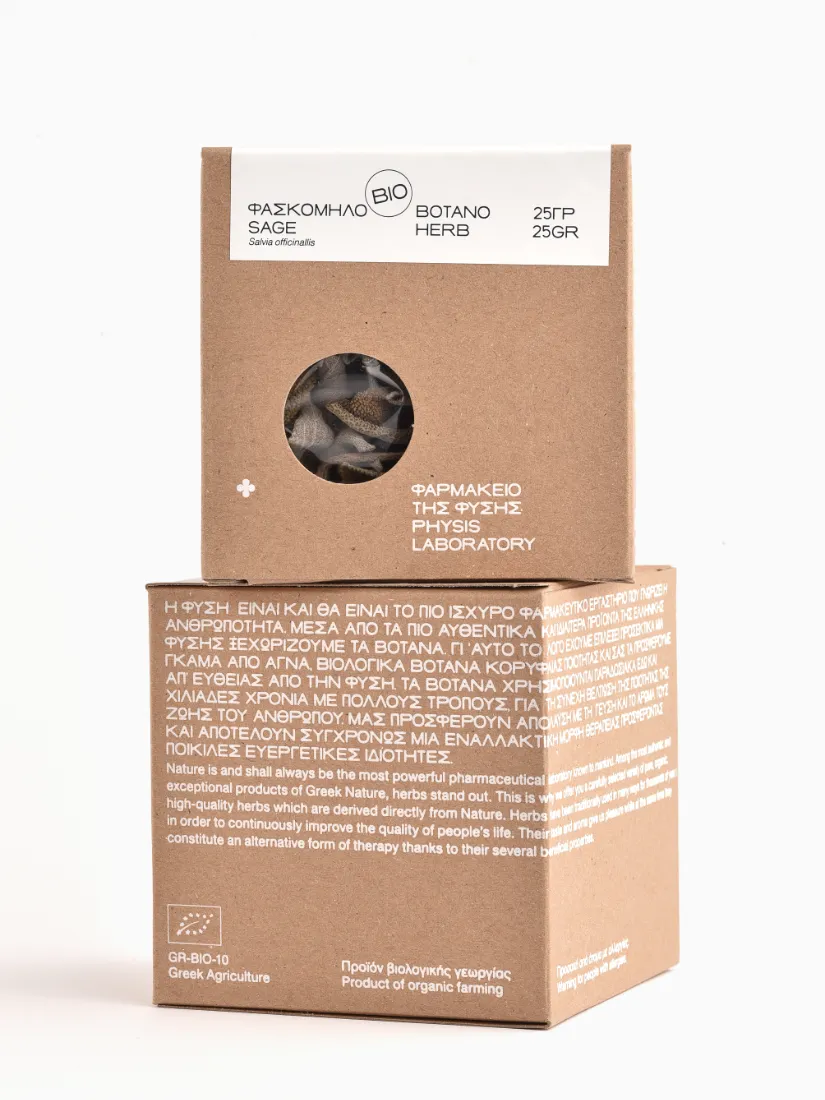Lopresti A.L., (2017). Salvia (Sage): A Review of its Potential Cognitive-Enhancing and Protective Effects. Drugs, 17(1): 53-64. https://doi.org/10.1007/s40268-016-0157-5
Walch S.G., Tinzoh L.N., Zimmermann B.F., Stühlinger W. & Lachenmeier D.W., (2011). Antioxidant Capacity and Polyphenolic Composition as Quality Indicators for Aqueous Infusions of Salvia officinalis L. (sage tea). Frontiers in Pharmacology, 2:79. https://doi.org/10.3389%2Ffphar.2011.00079
Sá C.M., Ramos A.A., Azevedo M.F., Lima C.F., Fernandes-Ferreira M. & Pereira-Wilson C., (2009). Sage tea drinking improves lipid profile and antioxidant defences in humans. International Journal of Molecular Sciences, 10(9): 3937-3950. https://doi.org/10.3390%2Fijms10093937
Kianbakht S., Nabati F. & Abasi B., (2016). Salvia officinalis (Sage) Leaf Extract as Add-on to Statin Therapy in Hypercholesterolemic Type 2 Diabetic Patients: a Randomized Clinical Trial. International Journal of Molecular and Cellular Medicine, 5(3): 141-148. http://www.ncbi.nlm.nih.gov/pmc/articles/pmc5125366/
Kianbakht S. & Dabaghian F.H., (2013). Improved glycemic control and lipid profile in hyperlipidemic type 2 diabetic patients consuming Salvia officinalis L. leaf extract: a randomized placebo. Controlled clinical trial. Complementary Therapies in Medicine, 21(5): 441-6. https://doi.org/10.1016/j.ctim.2013.07.004
Kianbakht S., Abasi B., Perham M. & Hashem Dabaghian F., (2011). Antihyperlipidemic effects of Salvia officinalis L. leaf extract in patients with hyperlipidemia: a randomized double-blind placebo-controlled clinical trial. Phytotherapy Research, 25(12): 1849-53. https://doi.org/10.1002/ptr.3506
Brindisi M., Bouzidi C., Frattaruolo L., Loizzo M.R., Cappello M.S., Dugay A., Deguin B., Lauria G., Cappello A.R. & Tundis R., (2021). New Insights into the Antioxidant and Anti-Inflammatory Effects of Italian Salvia officinalis Leaf and Flower Extracts in Lipopolysaccharide and Tumor-Mediated Inflammation Models. Antioxidants, 10(2): 311. https://doi.org/10.3390/antiox10020311
Choukairi Z., Hazzaz T., José M.F. & Fechtali T., (2020). The cytotoxic activity of Salvia officinalis L. and Rosmarinus officinalis L. Leaves extracts on human glioblastoma cell line and their antioxidant effect. Journal of Complementary and Integrative Medicine. https://doi.org/10.1515/jcim-2018-0189
Scholey A.B., Tildesley N.T., Ballard C.G., Wesnes K.A., Tasker A., Perry E.K. & Kennedy D.O., (2008). An extract of Salvia (sage) with anticholinesterase properties improves memory and attention in healthy older volunteers. Psychopharmacology, 198(1): 127-39. https://doi.org/10.1007/s00213-008-1101-3
Kennedy D.O., Pace S., Haskell C., Okello E.J., Milne A. & Scholey A.B., (2006). Effects of cholinesterase inhibiting sage (Salvia officinalis) on mood, anxiety and performance on a psychological stressor battery. Neuropsychopharmacology, 31(4): 845-52. https://doi.org/10.1038/sj.npp.1300907
Akhondzadeh S., Noroozian M., Mohammadi M., Ohadinia S., Jamshidi A.H. & Khani M., (2003). Salvia officinalis extract in the treatment of patients with mild to moderate Alzheimer’s disease: a double blind, randomized and placebo-controlled trial. Journal of Clinical Pharmacy and Therapeutics, 28(1): 53-9. https://doi.org/10.1046/j.1365-2710.2003.00463.x
Bommer S., Klein P. & Suter A., (2011). First time proof of sage’s tolerability and efficacy in menopausal women with hot flushes. Advances in Therapy, 28(6): 490-500. https://doi.org/10.1007/s12325-011-0027-z
